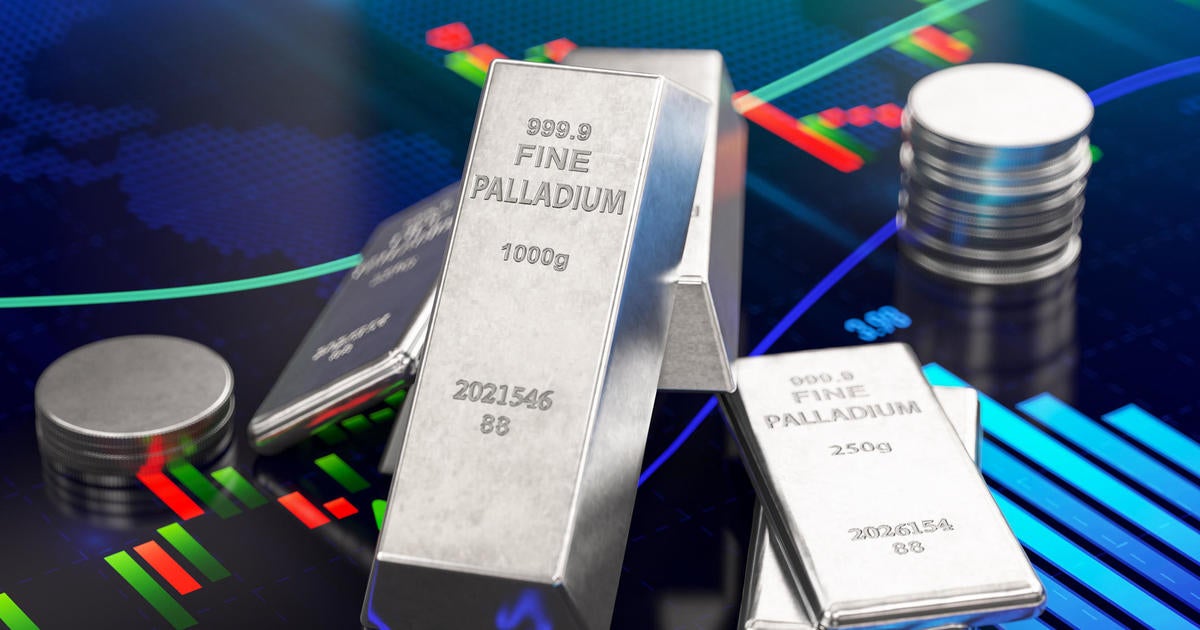- ‘Further Investment in Power’ Will Drive Big Law Business—But What About Clean Energy Projects?
- Will gold prices rise in 2025 and how can you invest?
- Europe’s start-up ecosystem is evolving, with big investment returns now possible
- Parent groups question Florida’s $15.6 million investment in school materials database
- GPU cloud startup Vultr secures AMD backing in $333 million investment round
You are viewing: Everything to know about platinum and palladium, the other precious metals
Getty Images/iStockphoto
Gold investing has skyrocketed this year as more people look for ways to protect their investments from economic uncertainty. At the beginning of the year, the price of gold was $2,063.73 per ounce, but according to American Hartford Gold, it’s currently trading at $2,627.01.
“Interest in gold continues to rise because it’s widely regarded as a safe-haven asset,” says Jose Gomez, a partner at Summit Metals. “Concerns about inflation, geopolitical tensions, and stock market volatility often push people toward gold as a way to preserve wealth.”
See more : Gladstone Investment to Acquire Defense Contractor Ricardo Defense in Strategic Expansion Deal
This high level of interest in gold causes many people to overlook other precious metals like platinum and palladium. Though less popular than gold and silver, platinum and palladium could be a good way to diversify your portfolio.
To understand the benefits and drawbacks of platinum and palladium, we spoke to two experts who gave us their feedback on precious metal investing.
Find out more about your precious metal investing options here.
Pros of palladium and platinum investing
“Palladium and platinum both have industrial uses and are used in jewelry,” says Steve Braverman, founder at Dignity Gold.
Let’s look at some of the biggest benefits of investing in these precious metals. These include:
- Intrinsic value: Both platinum and palladium are extremely rare assets — both are about 30 times rarer than gold, according to Braverman. This scarcity makes both precious metals high-value assets.
- Alternative to gold: Platinum and palladium are also more affordable when compared to the price of gold today. The price of platinum is currently $941.90 per ounce, while the price of palladium is $955.50 per ounce.
- Diversification: If you’re invested heavily in the stock market, platinum can be a good way to diversify your portfolio. It has a low correlation with stocks and bonds, making your portfolio more resistant to market fluctuations.
- Inflation hedge: Like other precious metals, platinum can act as a hedge against inflation, protecting your purchasing power during inflationary periods.
- Strong demand: “Palladium and platinum are more closely tied to industrial demand than gold, which can present unique growth opportunities,” says Gomez. “For example, both metals are used extensively in catalytic converters to reduce vehicle emissions.” This strong demand helps them sustain their long-term value and provides unique growth opportunities.
See more : How Real Estate Syndications Can Help Investors Earn Passive Income
Learn more about how the right precious metals could benefit your portfolio.
Cons of platinum and palladium investing
While these precious metals offer big benefits to investors, there are also some potential downsides to investing in them, including:
- Volatility: Platinum and palladium tend to be more volatile, especially when compared to gold or silver investing, so they may not be the best option for risk-averse investors.
- Less liquidity: “Liquidity can also be an issue — while gold is traded globally and is easy to buy or sell, certain palladium or platinum products may be harder to offload quickly at fair prices,” says Gomez.
- High industrial use: Both platinum and palladium are heavily used in the automotive industry, so a downturn in this sector could cause their prices to drop.
- Harder to access: Braverman notes that the mining process in retrieving platinum and palladium is much more difficult. “The deposits are typically deeper and harder to access,” he says. “Gold and silver are the easiest to mine and most sought after, so if miners have a significant amount of either, they are typically more profitable to mine.”
The bottom line
Platinum and palladium can diversify your portfolio and are more affordable when compared to the price of gold. Their rarity and strong ties to the automotive industry can make them valuable alternative investments.
But these precious metals do come with drawbacks like higher rates of volatility and lower liquidity. Gomez warns that their close ties to the automotive industry could easily turn into a negative for investors. “This can be seen with a move to clean energy and the EV car market eliminating the need for platinum in production of car converters.”
Braverman agrees, adding, “A relatively small amount of both metals should be in a diversified portfolio, but in comparison, gold and silver are far superior as a long-term investment.” Ultimately, you should consider your risk tolerance, financial goals, and the overall market outlook when choosing your investments.
Source: https://magnacumlaude.store
Category: News


